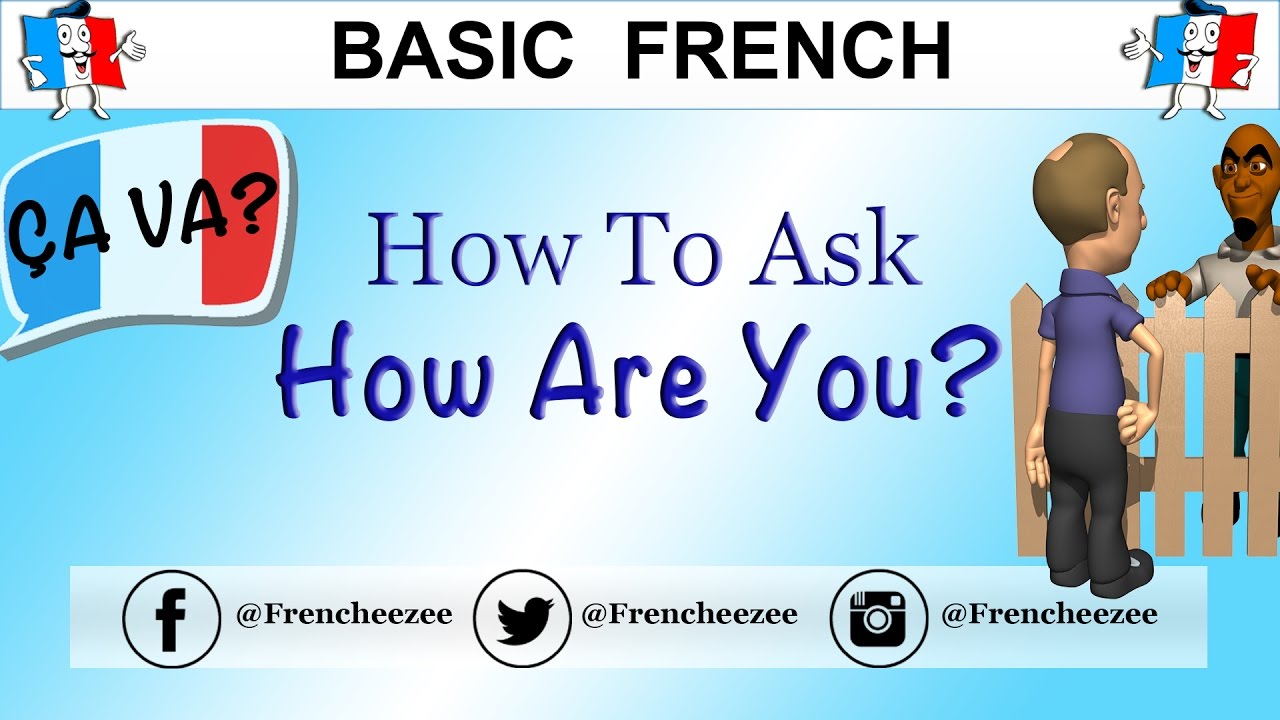How Are You in French: A Comprehensive Guide

When learning a new language, it is essential to master basic greetings and expressions. One such expression that is commonly used in everyday conversations is “How are you?” In French, this phrase is translated as “Comment ça va?” Understanding how to ask and respond to this question is crucial for effective communication in French-speaking countries. In this article, we will explore the various ways to ask and answer “How are you?” in French, along with some cultural nuances associated with this common greeting.
1. Formal and Informal Ways to Ask “How Are You?”
In French, there are different ways to ask someone how they are doing, depending on the level of formality. The most common phrase used in both formal and informal settings is “Comment ça va?” This expression is versatile and can be used in various contexts. However, when addressing someone formally, it is more appropriate to use “Comment allez-vous?” This phrase shows respect and is commonly used when speaking to elders, strangers, or in professional settings.
It is worth noting that French culture places great importance on politeness and formalities. Therefore, using the appropriate form of address is crucial when asking someone how they are doing. By using the correct level of formality, you can demonstrate your understanding of French etiquette and show respect for the person you are speaking to.
2. Common Responses to “How Are You?”
When responding to the question “How are you?” in French, there are several common phrases that you can use. The most straightforward response is “Ça va bien” or “Ça va” which translates to “I’m fine” or “I’m okay.” These phrases are suitable for both formal and informal situations.
In more casual settings, you may hear people respond with “Ça roule” which means “It’s rolling” or “Ça baigne” which translates to “It’s swimming.” These expressions are informal and are commonly used among friends or peers. They convey a sense of positivity and informality in the conversation.
3. Expressing Different Emotional States
Beyond the simple “I’m fine” response, it is helpful to know how to express various emotional states when answering “How are you?” in French. Here are a few examples:
– “Je suis très bien” means “I’m very well.”
– “Je suis fatigué(e)” translates to “I’m tired.”
– “Je suis heureux/heureuse” means “I’m happy.”
– “Je suis triste” translates to “I’m sad.”
By learning these phrases, you can express a wider range of emotions and engage in more meaningful conversations with native French speakers. It is important to note that the adjective used to describe your emotional state must agree in gender with your own gender.
4. Cultural Considerations
Understanding the cultural nuances associated with asking and answering “How are you?” in French is essential for effective communication. In French culture, it is common to greet someone with “Bonjour” or “Bonsoir” before asking how they are doing. This shows politeness and sets the tone for the conversation.
Additionally, when responding to “How are you?” in French, it is customary to reciprocate the question. This demonstrates genuine interest in the other person’s well-being and fosters a sense of connection. It is considered impolite to simply answer the question without asking it in return.
Conclusion:
Mastering basic greetings and expressions is crucial when learning a new language. In French, asking and responding to “How are you?” is an essential part of everyday conversations. By understanding the formal and informal ways to ask this question, along with common responses and cultural considerations, you can navigate social interactions with confidence in French-speaking countries. So, next time you engage in a conversation with a French speaker, don’t forget to ask, “Comment ça va?”






